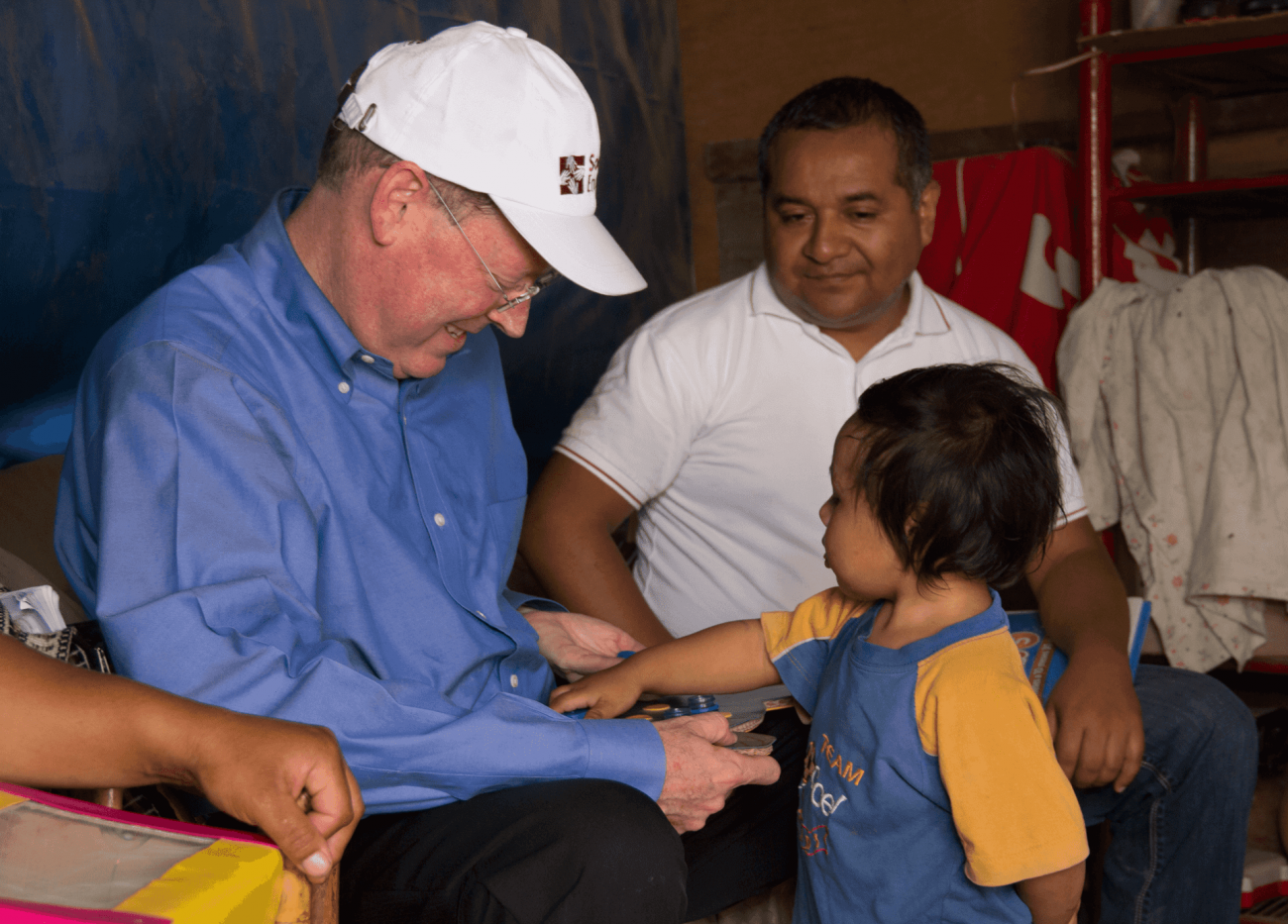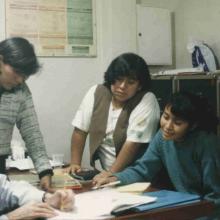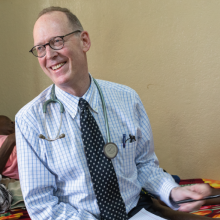There is much to say about Dr. Paul Farmer. That he was chief strategist and co-founder of Partners In Health, that he served as chair of Harvard University’s Department of Global Health and Social Medicine, or that in 2012 he was appointed community medicine advisor to the UN.
But to understand the magnitude of his milestones, it is first necessary to know who Paul was before Dr. Farmer. To review his history is to confirm that sometimes coincidences carry powerful messages that are only visible years later.
In 1971, in the United States, the family of a then young Paul moved from Alabama to Florida in search of a better life. The move was made possible because, years earlier, Paul’s father had purchased a bus at a public auction.
However, this was no ordinary vehicle. Before it belonged to the Farmers, that same bus, oddly enough, had served as a traveling tuberculosis clinic, and had even been adapted to house an X-ray machine. Sort of like a great-grandfather of the SES Mobile TB.
The Farmers not only used the bus for their crossings, they also made it their home for an extended period. In Florida, Paul, his parents and his five siblings settled in a trailer park next to a forest, where his adolescence would be spent between being a standout student at school and beginning to cultivate a sensitive spirit for the underdog.
And it is that, as a child, Paul knew all kinds of stories that would shape his vision of a world that seemed unfair. He learned of the misery of Haitians working in the orange groves of Florida, of the limited life of his neighbors in the trailer park, and he also learned firsthand of his father’s experience working with older adults suffering from mental disorders.

Dr. Paul Farmer with Dr. Leonid Lecca (SES CEO) on a visit to Peru.
Paul understood from an early age what social injustice meant. His struggle would eventually become the mission with which Partners In Health was born in 1987 in Haiti, to offer a cure against issues such as tuberculosis and HIV/AIDS, which were a death sentence for the poorest in that Caribbean country.
But why Haiti?
When in the late 1970s Paul went to study at Duke University (North Carolina) on a full scholarship, he also encountered a reality that was not alien to him: not far from the university campus, there were tobacco plantations where immigrants, mostly Haitians, worked in appalling conditions.
Paul found himself for the second time in his life before a scene of social injustice that again had Haitians as protagonists. Only this time he was prepared.
During his years at Duke training in medical anthropology, Paul had acquired a moral understanding of public health. He delved, above all, into the work of German physician Rudolf Virchow, who would become his point of reference for his vision of medicine, which was embodied in phrases such as “the purpose of medical training is not to provide students with a way of life, but to ensure the health of the community” or “physicians are the natural advocates of the poor and it is they who would have to solve, to a large extent, social problems.”
This last one was Paul’s favorite phrase.
That’s why, when Paul met the Haitians working on those tobacco plantations not far from his university, he didn’t sit idly by and took action. He learned all he could about Haiti, its history, its language, and in the spring of 1983 he left with $1000 for one of the poorest and most violent countries in all of the Americas.
There he would begin his career with Partners In Health, designing and implementing sustainable health care solutions for underserved communities, along with Jim Yong Kim and Ophelia Dahl, co-founders of the organization.
The rest is history.
In one way or another, Paul’s childhood was preparation for a nomadic life that would take him as an adult to different parts of the world in search of offering a cure against social injustice. His life was that of a believer and advocate for health equity, whose worldview could be summed up in one of the phrases he used to say:
“We truly believe that all people have equal value, and we can all build health systems that are compassionate and merciful.”
“We really believe that all people have equal value, and we can all build health systems that are compassionate and merciful.



